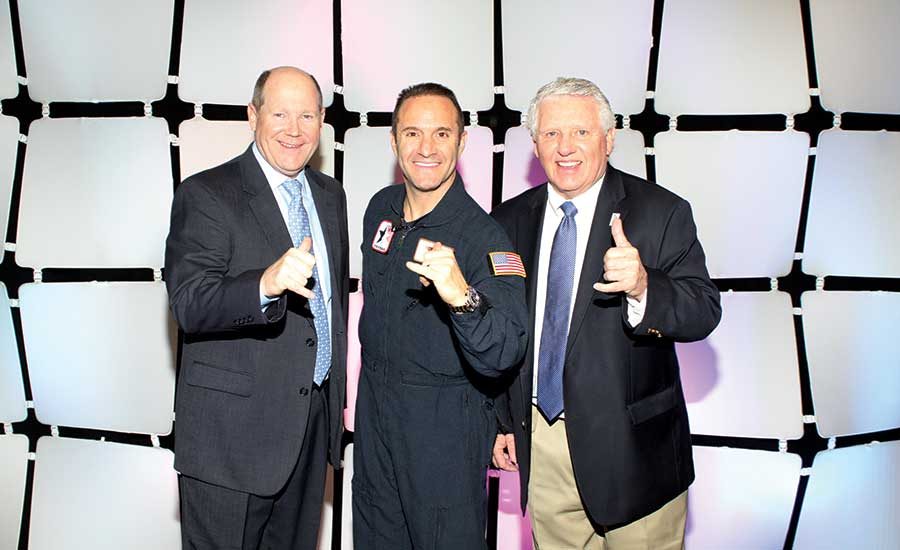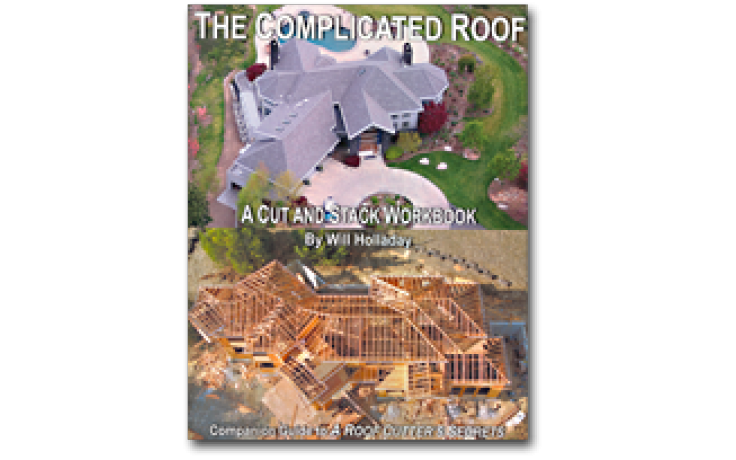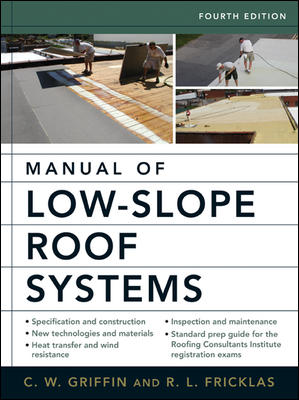Back Home: Q&A with Reid Ribble, NRCA's New CEO
The NRCA’s New CEO Finds Comfort Returning to Roofing after Six Years in Congress and has Big Ideas for the Future

“I think on Capitol Hill they’re moderately aware that the roofing industry exists, but we’ve never really spoken collectively with one voice,” said new NRCA CEO Reid Ribble. “My role, in part, is to get all of us together; manufacturers, distributors, and roofing contractors to reimagine what we could be if we did things a little different.” Photos by Karen McConnell.

(From left) NRCA CEO Reid Ribble, Ret. Lt. Col. Rob ‘Waldo’ Waldman, and NRCA Chairman Dennis Conway pose together on stage before Waldman delivered the keynote address at IRE 2017 in Las Vegas in March.

“One of my interests is to begin to put a face back on that man or woman who does (roofing) work,” NRCA CEO Reid Ribble said. “Without that man or woman we don’t exist and I want to make sure that they’re respected.”



Reid Ribble is the first new CEO of the National Roofing Contractors Association (NRCA) in nearly 30 years. The former roofing contractor from Wisconsin takes the helm after serving three terms in the U.S. House of Representatives, and finds himself in charge of the organization at a time of both monumental change in the roofing industry and a profound political shift in our country.
He recently sat down with Roofing Contractor from the IRE 2017 showroom floor to discuss his return to the roofing industry from Washington; his goals for empowering roofers across the country; and his vision for the industry and the NRCA going forward, which is a bit — unconventional, to say the least.
RC: You’re a few months into your tenure as CEO. How does it feel and are there big shoes to fill?
Reid Ribble: It’s both exciting and intimidating. (Former NRCA CEO) Bill Good is truly a legend in the roofing industry in the United States. In part because of the great work he’s done leading the NRCA for so long, and his father before him. That’s nearly a half-century of legacy there, so I want to honor it but also be transformative as the association goes forward.
RC: You have a long association with the NRCA, correct?
RR: I do. As a roofing contractor, my company joined the association in the 1970’s, and I was active on their board for nearly two decades, and ultimately became president in 2006. So I’ve had a lot of experience with the NRCA, and it’s good to be home.
RC: As a roofing contractor, what did you like about the association and being a member?
RR: I think the thing that often gets missed is one of those intangibles. You build relationships here whereby you can network with people that have like experiences but have tackled those problems differently. And they’re not competitors. So if you have a good friend like I do … I can call them and ask what did they do to handle a problem and move the company forward.
Because we weren’t competing with each other, we were able to share those best practices in a really open and candid manner. It’s one of those intangibles that’s real and if you talk to NRCA members they’ll speak to it. But I think someone thinking about becoming a member doesn’t know how to value it.
RC: What didn’t you like about the organization from a member’s perspective?
RR: I don’t know that I had any frustrations with the organization because I was such a big fan, but I still think there are some things that as an organization we can do better.
We can execute better when we decide to go after something. We need to see these projects through and finish them in a timely fashion. I think the execution could be better but I’ve got very little criticism of the organization as it is.
RC: What has changed about the industry since your time away while you were a member of congress?
RR: I don’t know that I noticed anything different about the industry. I was asked ‘how it felt’ to be back and I said that it felt like I’d never been gone. I’ve seen a lot of familiar faces. The (IRE), other than being larger, looks about the same. The people have the same passion and energy for what they do.
We literally work in the oldest industry known to man. From the beginning, whether you believe in creation or evolution, from the very beginning people sought shelter. When it rained outside they wanted to cover up, when it got cold outside they wanted to warm up, and they’ve always sought shelter. So we work in a very, very mature market. And innovation becomes a challenge for an industry, quite frankly, as mature as this one.
RC: What do you find exciting about the industry you’ve made your way back into?
RR: The thing that gets me fired up about being here is that it’s a uniquely American experience. The bulk of our products are manufactured here, the roofing contractors are American-owned companies and they’re installing these systems with American workers. None of that has changed, it’s exactly the way it’s always been.
RC: It’s obvious that you’re very passionate about roofing. Where did that come from?
RR: My father was mostly a minister, but partly a roofer. I grew up in a family with five brothers and two sisters, so he had a few mouths to feed.
He was heavily involved in ministerial work and enjoyed working with his hands. He was a combat marine in World War II and liked being outside. He got into the roofing business and had a relatively small company that helped supplement the family’s income. I watched how hard my dad worked and we were taught at a very young age to respect and honor hard work. Watching my father inspired me, and I actually liked doing the same kinds of things. So in 1975 I joined my father’s company and there were only three or four of us working together at the time. In 1982 I decided to purchase the company from my father and turned it into a full-time career.
RC: Tell me about your transition from roofer to congressional candidate. Why did you do it?
RR: In 2008, that election didn’t go very well (for Republicans). Democrats swept the White House, the Senate and the House of Representatives and had full control of the government. And I got a bit nervous about it. In talking with my two grown sons, they encouraged me to put my money where my mouth was, and that if I didn’t like what I saw that maybe I should get involved in public service in a different way and consider running for office.
I thought it was a crazy idea at the time. That was around Christmas, but after about six months it was starting to keep me up at night the more I thought about it. It finally got to a point where I said ‘why not me?’
RC: Did you have strong support from your family and associates in the industry?
RR: When I first started talking to family members, they thought I was crazy. They’d say things like ‘How could you ever win? You don’t have any experience; why would anybody vote for a roofer?’ And those were all legitimate questions, but I kept having that nagging feeling that our system of government needed citizens that weren’t embedded in politics to come in and shake up the status quo in Washington D.C.
And in fact, I think the recent election of Donald Trump was part of an ongoing effort by the American people to rattle Washington back to some sense.
RC: You were a fairly strong critic of President Trump while he was campaigning. Did NRCA members voice their concerns about that given your political background?
RR: I was, and yes, it did. Roofing contractors aren’t bashful. They’re successful in their own right in many ways and many of them were big fans of President Trump, or candidate Trump at the time. Me? I was less so. But I really appreciated what (Ohio Governor and former presidential candidate) John Kasich said the other day that when you’re on the plane, you’re all rooting for the pilot. And the reality is President Trump is the pilot and all Americans ought to be rooting for him to be a success, because if he’s successful, we’ll be successful. And that’s exactly where I find myself today.
RC: What’s the perception of the roofing industry on Capitol Hill?
RR: I think on Capitol Hill they’re moderately aware that the roofing industry exists, but we’ve never really spoken collectively with one voice. You’ve got the manufacturers doing their thing; the raw materials groups doing their thing; distribution is doing their thing; the EPDM guys doing their thing; the PVC guys doing their thing. So we’ve taken this very large voice and cut it down into tiny small voices and if we want to be effective in Washington, if we want Capitol Hill to pay attention to us, we must speak with one voice.
RC: Is that beginning to happen?
RR: Before leaving, Bill Good held meetings with the voices from manufacturing and distribution within the industry. The driving message that came out of it was that we have to collectively fix that. If we would go into Washington with a single voice and do grassroots a little differently, we could accomplish more there on behalf of the men and women in this industry.
RC: There was a lot of excitement about your appointment given your political experience. Does that add any pressure to become more politically involved in industry matters?
RR: The pressure that it adds is in building consensus and taking all of these disperate interests, and quite frankly, competitive interests and pulling them together and focusing on the 95 or 98 percent of things that we do agree on — if we do that then we’ll be really effective. And it’s not just Washington D.C., it’s with the codes bodies. Instead, we go in there with 17 different voices and are surprised when the code doesn’t go the way we want it to. What we ought to be doing is uniting around the common things we can agree on and let’s go to them collectively, and we’ll see that we’ll be less invisible and we’ll be able to shape what our future looks like.
I think we often get away from imagining and projecting what our world will be like in 10 years because it’s too far in the distance, but had we imagined it 10 years ago we’d already be there today. My role, in part, is to get all of us together; manufacturers, distributors, and roofing contractors to reimagine what we could be if we did things a little different.
RC: As a former contractor, what do you see your role is with roofing contractor members?
RR: One of my interests is to begin to put a face back on that man or woman who does (roofing) work. Part of being successful and working in such a mature industry is that it never gets seen. We never think about it that when it rains we won’t get soaking wet. If it were to rain right now, we wouldn’t have to worry about it sitting in this building because some man or woman put this roof on and did it in a safe and competent manner. When we walk in a building and turn the lights on, the lights automatically go on and we never think they won’t go on, because they go on all the time. But at some point, there was an electrician that wired that light, and at some point there was a roofer that put that roof on.
What I want to do is think about them because this industry would not exist without that roofing worker that often works in very hot or very cold climates and in very difficult conditions. Without that man or woman we don’t exist and I want to make sure that they’re respected.
RC: What are your short-term goals for NRCA?
RR: I’m pretty pleased with the team we have in Rosemont, Ill. I’d like to finish the projects that Bill and his team started like the training initiative and the certification of workers so that they can own the certifications themselves and get some of that self-respect I spoke of. We’re getting close to launching that in the fall of this year. I want to see those projects get done and grow our presence in Washington D.C. and I want to meet with all the associations in the industry from the manufacturers and distributors and shape what that one voice looks like.
RC: What are your long-term goals for NRCA?
RR: In the long-term, I want to help people reimagine what our industry would look like with 300,000 certified workers. If, in fact, we’re not able to recruit more, we must recognize that we have an aging demographic in this country. Our workforce is aging, and if immigration is restricted we’re going to have fewer workers to do this work. So we better train these workers. We need to make them more productive and safer. And if we can do that then we’ll continue to grow.
RC: What’s the benefit of having a uniform, national certification process, and how do you balance that with similar efforts already underway at the regional level?
RR: I don’t think there’s anything wrong with training at the regional level. I think we should be training at every single level that we can. However, there’s going to come a time when we have that uniform consistency where that workforce can be portable.
Take a company, for example, in Nashville, Tenn. If that company had a national certification and the United States had a national weather event or emergency, where we collectively need to share resources to meet that demand. Having a consistent, nationally-trained workforce that can move from the northeast to the south, or from the west, and to shove this workforce where there’s this incredible need, that’s how you respond to events like that.
RC: Is this part of the solution to the public perception problem plaguing the roofing industry?
RR: There’s a perception that roofers aren’t professionals. I was mocked and ridiculed during the campaign for ‘just being a roofer.’ Now stop and think about that for a minute. I had Republicans accuse me of that … I had Democrats accuse me of that. And to use it in that type of language was done as a pejorative (with contempt or disapproval). So I stood up straight and said: ‘Yes, I am a roofer, and I’m proud to be a roofer. My kids went to college because I’m a roofer. I live in a nice home and drive a nice car because I’m a roofer. And if you think I’m going to apologize because I provided jobs for 100 people, you’ve come to the wrong place.’
I do want the people of America to view us differently. It’s a professional and honorable field.
RC: How can rank-and-file NRCA members help you achieve your goals?
RR: The thing that they can do as NRCA members is to talk to their colleagues in their local community and encourage them to join with us because as the NRCA grows, its cost structure can go down, not up.
If we can grow, we can do those kind of things and even make it more cost effective than ever before.
RC: What are the opportunities for roofing in the future?
RR: This will take you by surprise, but I think one of the biggest opportunities is in water.
Stop and think about it. We use roofs on big buildings to cover and collect solar energy. But water is selling for more than oil is these days. It’s an extremely valuable commodity. And yet we have this massive amount of collection space, but virtually none of it is collected at all. It’s just running through the drains and into the storm sewer.
In other parts of the world, the roof is becoming an area to collect it so that we can manage and control water so much more effectively, efficiently and for less cost. There’s going to come a day when all these hard surfaces that we use to keep water out can also be used to collect water. There will come a time, mark my words, when not only will we want to collect water, but there will be a profit tied to collecting water.
RC: Roofers spend their entire careers trying to keep water out. Can they adapt to this idea?
RR: We’ll need more education on it for sure. Global climate change, whether you believe it’s man made or not, it’s actually happening, so it’s irrelevant what’s causing it. We know that we can affect our environment around us. And we ought to be collecting water where it matters. I believe there’s a whole future out there that we haven’t scratched the surface of, but it’s coming. There are more jobs today in solar than there are in coal. And someday there’ll be more jobs in water than there are in other things.
Looking for a reprint of this article?
From high-res PDFs to custom plaques, order your copy today!












